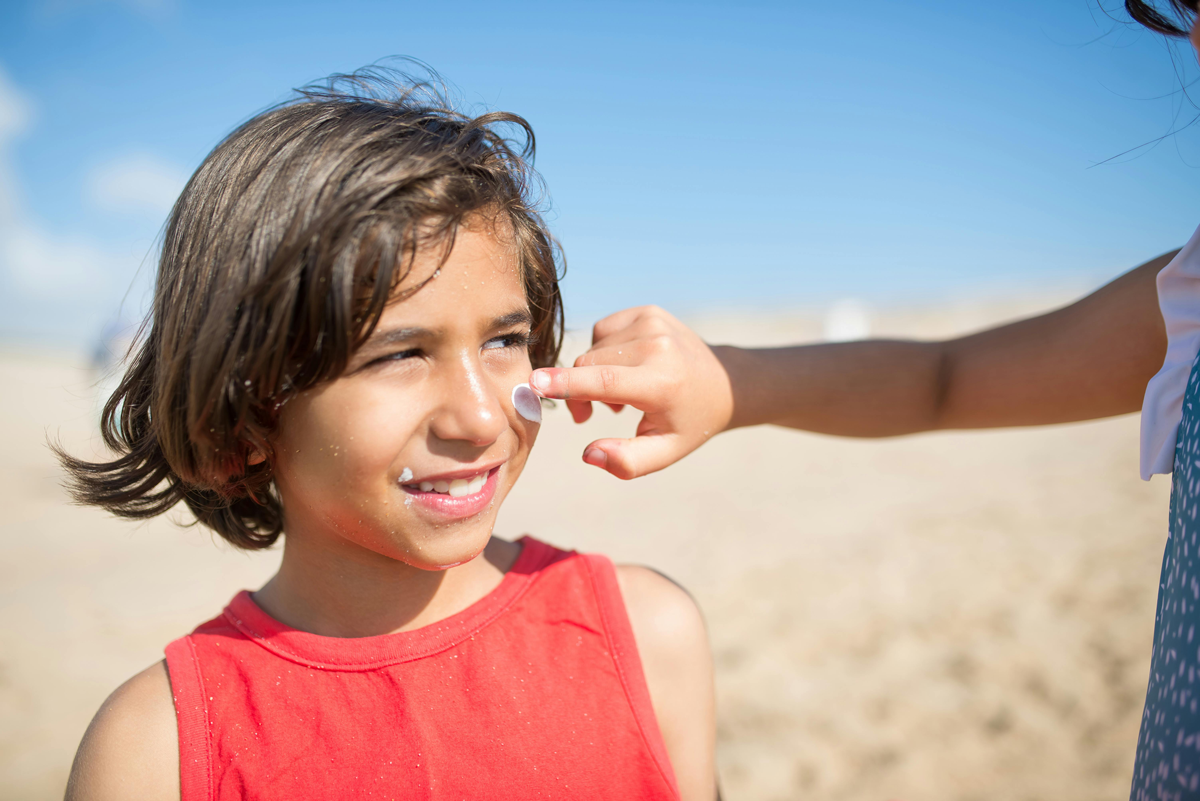- Patients
- Conditions we treat
- Skin cancer
- Melanoma skin cancer
What is melanoma skin cancer?
What is melanoma skin cancer?
Diagnosis
Diagnosis

When melanoma is detected and treated early, the estimated five-year survival rate is around 99%,4 so early detection is essential.
According to the Cancer Council, the first sign is usually a change in an existing mole or the appearance of a new spot on the skin. Changes may include:5
- Colour – a mole may change colour, develop new shades, or become blotchy
- Size – a mole may increase in size
- Shape – a mole may become irregular, raised, or lose its symmetry
- Elevation – the mole may become more raised than before
- Itching, crusting, or bleeding
While many factors can contribute to melanoma, the leading cause is excess exposure to ultraviolet (UV) radiation. This most commonly comes from the sun but can also come from artificial sources such as solariums.6
Factors that may increase the risk of developing melanoma include:6
- Unprotected or excessive UV exposure (from sunlight or artificial sources)
- Fair, pale, or freckled skin that burns easily
- A personal or family history of melanoma or other cancers
- Having many moles, especially those that are large, irregular, or uneven in colour
- A weakened immune system due to certain medical conditions or medications
Melanoma most often develops on areas of the body that are frequently exposed to the sun. However, it can also occur in areas that receive little or no sun exposure, such as:6,7
- The eye (uveal or ocular melanoma)
- Nasal passages, mouth, and genitals (mucosal melanoma)
- Soles of the feet, palms of the hands, and under the nails (acral melanoma)
Non-melanoma skin cancers — including basal cell carcinoma (BCC) and squamous cell carcinoma (SCC) — are much more common than melanoma, accounting for around 99% of all skin cancer diagnoses.8
Find out more about non-melanoma skin cancers including diagnosis and treatment options.
If you’ve noticed any new or changing moles, spots, or other changes to your skin and are concerned about the possibility of melanoma, book an appointment with your GP or a qualified skin specialist for advice and a comprehensive skin examination.
In many cases, your doctor or skin specialist may be able to assess and diagnose melanoma through a physical examination of the skin.
If treatment is needed, your doctor or specialist, together with your broader healthcare team, will work with you to determine the most appropriate option. This will depend on several factors, including the type, location, and size of the skin cancer, as well as your overall health and potential side effects.
Find a doctor
Search for skin specialists in your state.
Treatment options
Treatment options
Melanoma treatment options vary depending on the stage and thickness of the cancer, its location, and your overall health. In most cases, early-stage melanoma can be successfully treated with surgery alone, while more advanced melanoma may require a combination of treatments such as surgery, immunotherapy, targeted therapy, chemotherapy, or radiation therapy.6,9 Common treatment options include:
Surgery is the most common treatment for melanoma diagnosed at an early stage (stages 0–2, or localised melanoma). This involves removing the cancerous area, and sometimes a margin of surrounding tissue to ensure all cancer cells are removed.
Radiation therapy is not commonly used to treat the primary melanoma. However, it may be recommended when melanoma has spread to other parts of the body to help shrink tumours and relieve symptoms such as pain. It can also be used after surgery to destroy any remaining cancer cells.10
Find out more about Radiation Therapy, including how it works and who it’s for.
If melanoma has metastasised (spread to other parts of the body), treatment may include immunotherapy, targeted therapy, radiation therapy and surgery.6
The best treatment option will depend on factors such as the characteristics of the melanoma, where it has spread, and the symptoms you may be experiencing.
Learn more about:
Support services
Support services
- Melanoma and Skin Cancer Advocacy Network. (n.d.). What is melanoma? Retrieved July 2025, from https://mscan.org.au/learning-hub/melanoma/what-is-melanoma
- Melanoma Institute Australia. (n.d.). What is melanoma? Retrieved July 2025, from https://melanoma.org.au/about-melanoma/what-is-melanoma
- Australian Institute of Health and Welfare. (2025, October 8). Cancer data in Australia. Retrieved November 2025, from https://www.aihw.gov.au/reports/cancer/cancer-data-in-australia
- Skin Cancer Foundation. (2025, July). Melanoma overview. Retrieved October 2025, from https://www.skincancer.org/skin-cancer-information/melanoma
- Cancer Council Australia. (2024, September 24). Types of cancer: Melanoma. Retrieved October 2025, from https://www.cancer.org.au/cancer-information/types-of-cancer/melanoma
- Cancer Council Australia. (2025, March). Understanding melanoma cancer: A guide for people with cancer, their families and friends. Retrieved October 2025, from https://www.cancer.org.au/assets/pdf/understanding-melanoma-cancer-booklet
- Cancer Council NSW. (n.d.). About melanoma skin cancer. Retrieved October 2025, from https://www.cancercouncil.com.au/melanoma/about-melanoma/
- Cancer Council Australia. (2024, January). Understanding skin cancer: A guide for people with cancer, their families and friends. Retrieved October 2025, from https://www.cancer.org.au/assets/pdf/understanding-skin-cancer-booklet
- Skin Cancer Foundation. (n.d.). Melanoma treatment. Retrieved October 2025, from https://www.skincancer.org/skin-cancer-information/melanoma/melanoma-treatments/

You are leaving our website
You are now leaving our website. GenesisCare do not control this content and therefore are not responsible for its accuracy or reliability.
Disclaimer:
This website is provided for information purposes only. Nothing on this website is intended to be used as medical advice, or to diagnose, treat, cure or prevent any disease. It should not be used as a substitute for your own health professional's advice. Any medical procedure or treatment carries risks. Before proceeding with treatment, you should discuss the risks and benefits of the treatment with an appropriately qualified health practitioner. Individual treatment outcomes and experiences will vary.



